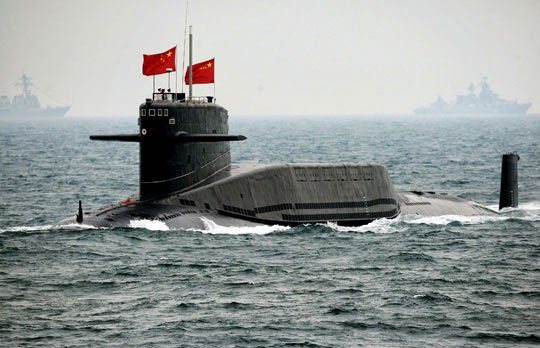Senkaku/Diaoyu Islands Dispute
Mutual mistrust between Japan and China
Before we engage into the Seknaku/Diaoyu islands dispute, it is important to facilitate our understanding of the mutual mistrust between Japan and China.
Beijing's mistrust towards Tokyo comes from the recent Japanese militarialism as it has only been half a century since the Second World War. The horrific brutality of the Japanese still live in the hearts of the Chinese.
Japan fears China of their nuclear capabilities and Beijing's close relationship with the North Koreans. The unpredictable nature of North Korea as well as the possession of nuclear heads of China drives Japan to view China as a serious threat to the regional and global security.
Senkaku/Diaoyu Islands dispute
Geo-strategic argument
There are three main geo-strategic arguments that can be made of the islands.- Oil and gas reserves
- Fishing rights
- Trade routes
However, I argue against this approach of analysis as the potential economic gain of the two states are minimal.
Symbolic argument
Perhaps the more convincing argument of the island dispute is the symbolic argument. The islands are bounded up with constructing national identity and pride.This is not a new idea of the classical realists. Hobbes, one of the fathers of classical realism, argue that the states are motivated by competition, diffidence, and glory.
Yahuda's research found that the Chinese public voice for their officials to take higher national pride and expect for their government to claim Diaoyu as a part of China.
From a classical realist approach, it is important to note the stativism aspect of the theory. Despite the social protests of the Chinese public, they are ultimately relying on their government for the resolution over the islands dispute.
Legal argument
Both parties of the Senkaku/Diaoyu islands dispute argue for the legitimacy over their claims.Japan argues that the islands were left inhibited and that there is evidence of Chinese control. Furthermore, they argue that the islands were administered by the Japanese government since 1972 and that the islands were ceded to Japan under the 1995 treaty with the United Nations.
China disregards the Japanese claims and argues that the islands were considered as part of the Chinese territory according to the map made in the 1300s in the Ming era.
The problem with this argument is of course that both sides are legitimizing their claims by legal arguments. This is perfectly understandable by the classical realists as they believe that the international political arena is under anarchy. Anarchy does not necessarily refer to total chaos. In this context of the islands' dispute, anarchy can be better understood as the absence of an overarching authority. As Hobbes argues that anarchy can be understood as the absence of both rulers and rules of international politics.
Self-Help
Self-help is another key theoretical element of classical realism. The name of the term explains itself. Classical realists argue that due to the anarchical nature of international politics and the mutual mistrust between states, states are ultimately reliant to defend their state and national interests with their own power.Although the United States is arguably one of the strongest states in the world, they have no official position in the islands' dispute. However, because of their military treaty between Japan, they must intervene if a war was to break out between Japan and China.
Despite the treaty, classical realists doubts that the United States' will launch a military intervention over the islands' dispute due to the close economic relationship between China and the United States.
This is best seen in the recent Ukrainian conflict. Although there is a military treaty between Britain and Ukraine, Britain did not launch a military intervention because it did not reflect their national interests.
Though the exact military capabilities of China is unknown due to their secrecy, the expansion of their military force is no secret as seen by the picture of their newly constructed nuclear-head submarine.
Abe, in response has recently declared a spacial navy unit dedicated solely to the Senkaku islands dispute.
Conclusion
Classical realists argue that the conflict of the islands will result in war. Through this approach, a war is considered as the expression of human nature's worst aspects in the struggle for power (Burchill, et al.). Judging by the recent responses of the two states, I would argue that a war is to break out in the near future as there seems to be no signs or evidence suggesting that they want a peaceful resolution.




No comments:
Post a Comment